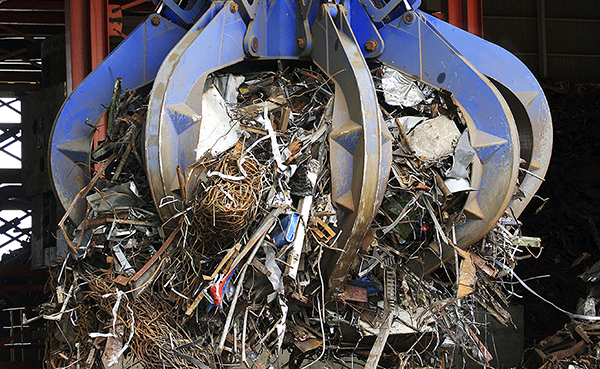EU scrap recyclers have continued to voice concerns over the consequences of potential curbs to EU ferrous scrap exports proposed in the current revision process to the EU Waste Shipment Regulation (WSR).
“My understanding today is that it will be very difficult to get the [EU] off the track that they are following now — I think we will see restrictions on [scrap] exports but to what extent remains to be seen,” Denis Reuter, chief operations officer at German recycler TSR Recycling, said at the International Bureau of Recycling, or BIR, convention in Dubai on Oct. 17.
“For heavy melting scrap [HMS] grades, I don’t see any opportunity to get around those restrictions, but for shredded scrap – if it’s a clean quality – I could imagine there would be possibilities for export in the future, and, of course, products like bushelling scrap, it should not be a problem but for HMS qualities, I have no hope,” Reuter added.
The European Parliament’s Environment Committee is expected to vote on the on the proposed WSR on Nov. 30 or Dec. 1, with the plenary European Parliament vote expected to take place in January 2023, a source close to the Committee told S&P Global Commodity Insights Oct. 17. However, the official timeline for the voting process has not yet been confirmed.
“I expect that the revised Waste Shipment Regulation will affect [scrap exports to] both OECD and non-OECD members,” the source added. The initial WSR proposal was mostly expected to affect scrap exports to non-OECD countries only.
In attempting to ensure availability of high-grade scrap within the EU as a part of the bloc’s decarbonization goals, the revised WSR aims to ban exports of EU-origin scrap to countries which don’t have EU waste treatment standards and would be obliged to conduct independent audits of their processing facilities. Cross-border shipment of waste between EU nations would be facilitated for reuse, recycling or disposal.
“The expectation is that the regulation could come into force from 2026,” Jens Björkman, head of ferrous trade at Sweden’s Stena Recycling, said at the Irepas conference in Monaco on Oct. 11.
“There has been strong lobbying from Eurofer [the European steel producers’ association] that the EU needs to control this strategically important raw material but the reality is that the total volume of ferrous scrap [produced in the EU] is too large to be wholly processed within the EU,” Björkman said.
“Around 20-22 million mt of ferrous scrap is currently exported each year from the EU, and perhaps a few million metric tons more will remain within the EU, as some steel production shifts from the blast furnace [BF] route to the electric arc furnace [EAF] route, but the rest will still need to find another home.”
“You can’t favor one strategically important industry [steelmakers] against another [scrap recyclers],” F.D. Baysal, President at US steel distributor Seba International, said at the Irepas conference.
The Federal Association of German Steel and Recycling Companies (BDSV) has also called on the EU to differentiate between steel raw materials recovered from recycling and untreated waste in the WSR, adding that they “expressly welcome stricter export restrictions for problematic waste streams.”
“The proposed export restrictions risk significant job losses in an industry whose competitiveness depends largely on its ability to commercialize recycled feedstock to recover the costs of proper waste management,” BDSV said on Oct. 6.
— Rabia Arif, Viral Shah






